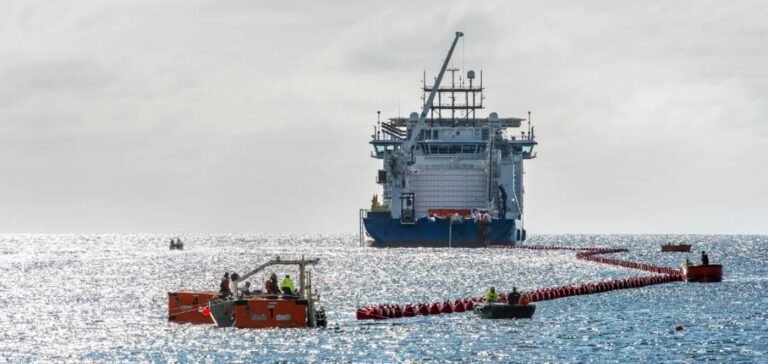Today, National Grid formally launched Viking Link, a 475-mile cable linking the British and Danish energy networks for the first time. This connection, with a capacity of 1.4 GW, will be able to supply up to 2.5 million British homes and is presented as a major step in the UK’s energy transition. It also represents the next step towards the creation of a North Sea power grid.
Significant economic and environmental benefits
This link is not only a technical feat, but also a vector of substantial savings, with benefits estimated at £5.2 billion for British consumers. In its first year, Viking Link is expected to reduce carbon emissions by 600,000 tonnes, equivalent to taking 280,000 cars off the road. In addition, Viking Link will bring over £500 million in savings for UK consumers in its first decade of operation.
A long-term vision for energy security
John Pettigrew, CEO of National Grid, said, “In an ever-changing global energy market, the value that connections like Viking Link can bring to national energy security cannot be underestimated.” The project is part of a series of initiatives to deploy 50GW of offshore wind power by 2030, with key interconnections such as Nautilus and LionLink under development.
Essential international collaboration
Energy Security Secretary Claire Coutinho noted, “At 475 miles long, Viking Link is the world’s longest onshore and subsea interconnector. This incredible feat of engineering will help us achieve net zero while strengthening our shared energy security.” The link, which has already transported 1.733 GWh of energy, is strategic for international collaboration, connecting the UK to offshore wind sources.
With UK renewables volumes on the rise, the country is set to become a net energy exporter by the 2030s. Viking Link is the forerunner of a North Sea overlay network, facilitating vital energy exchange between nations. In addition, National Grid has announced joint plans with TenneT for a new 1.8GW interconnector between the UK and the Netherlands, called LionLink, and is also working with Elia on a new link called Nautilus.






















